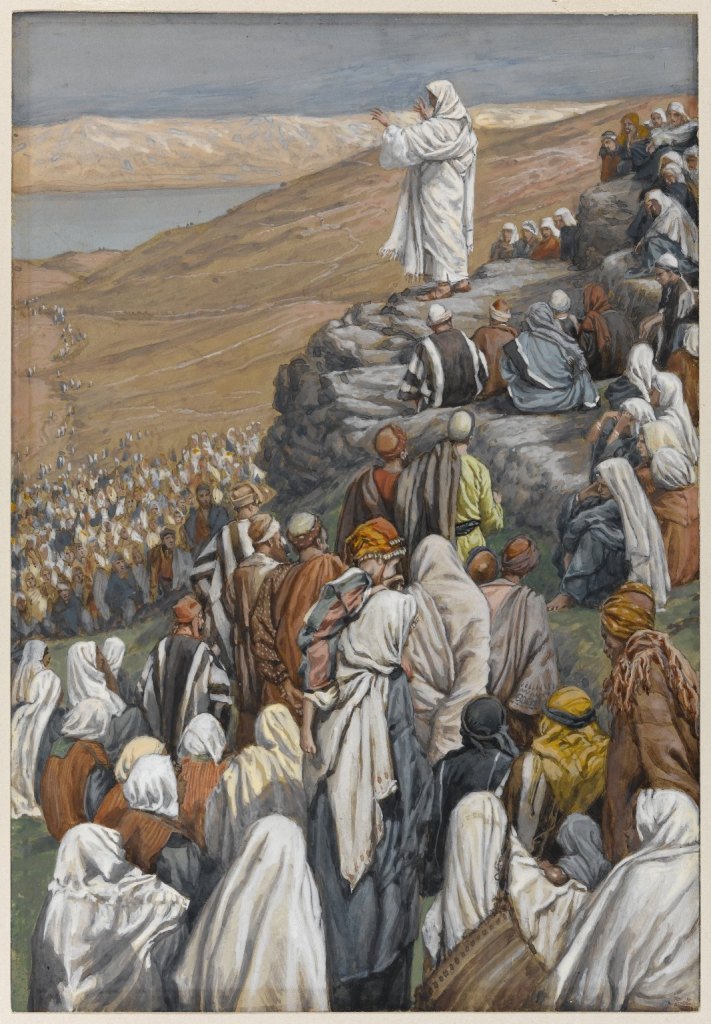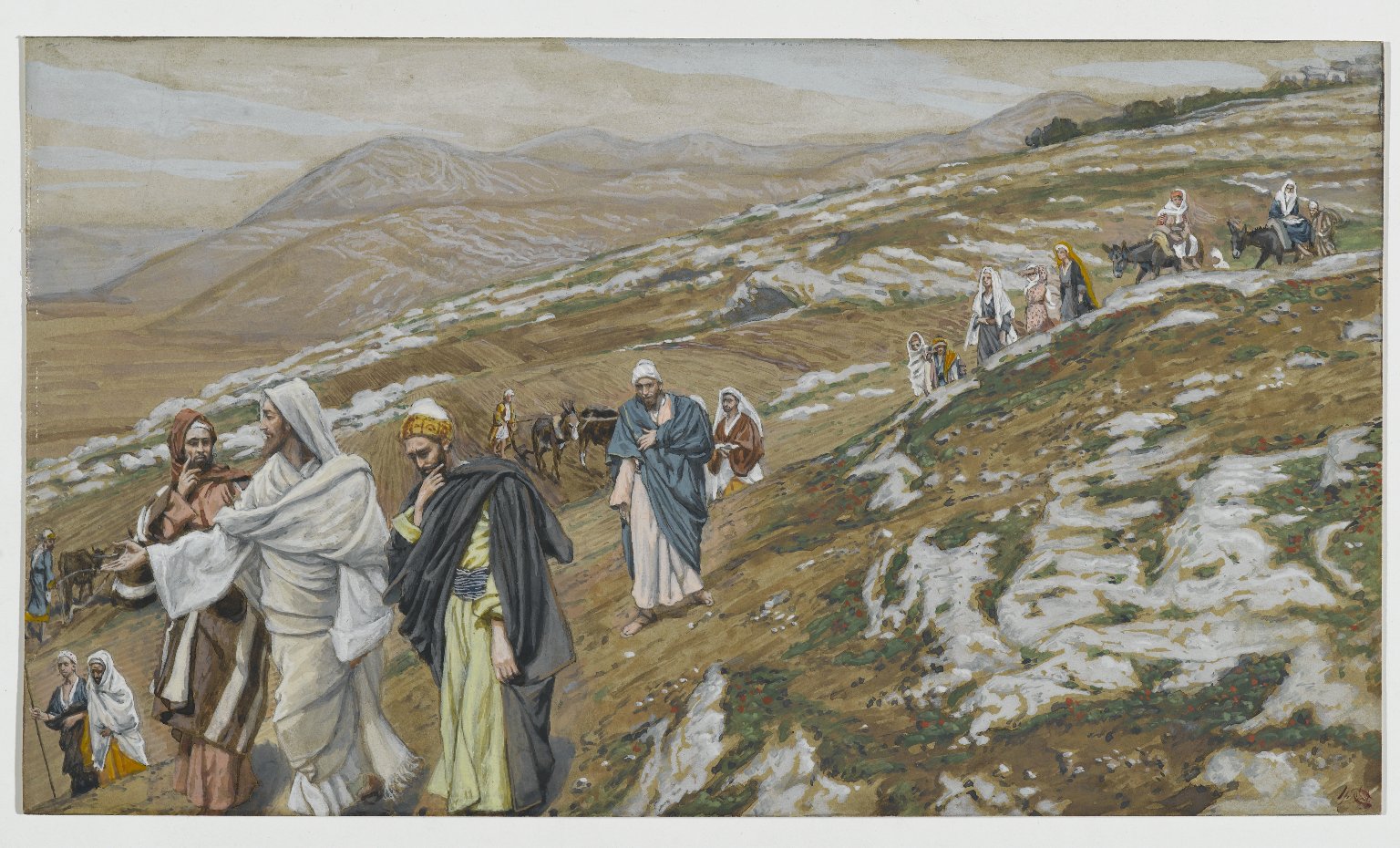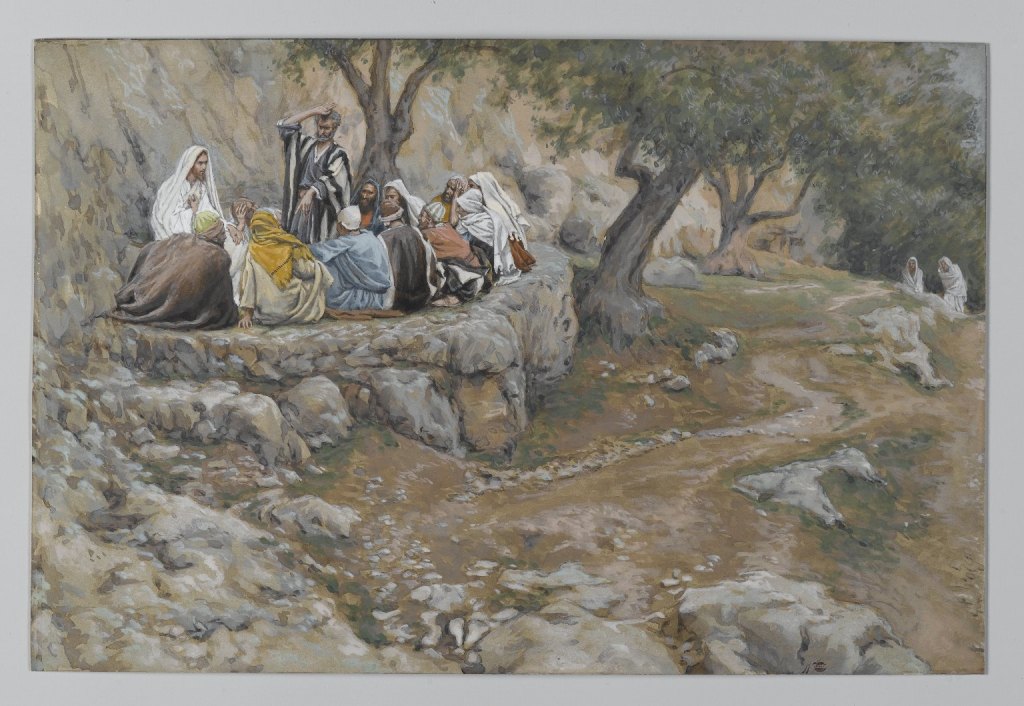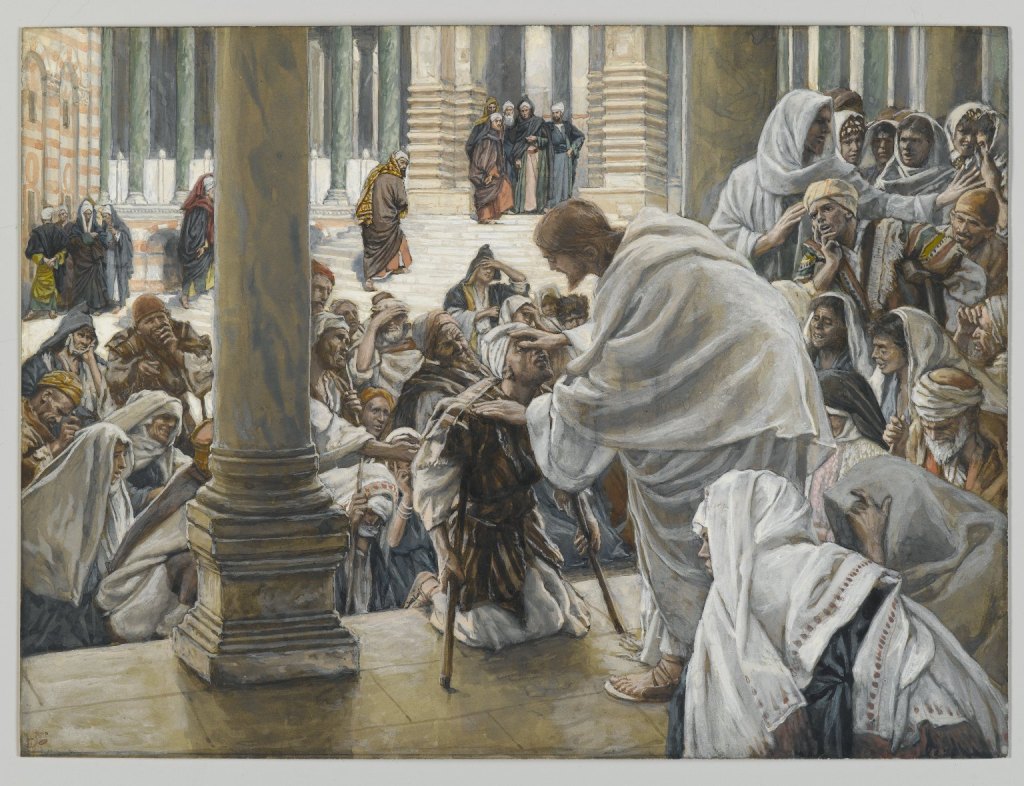Today’s first reading is from the First Book of Kings. Elijah the Tishbite has proclaimed that God is not happy at the religious changes undertaken by Ahab, King of Israel and his wife Jezebel. They are worshipping false gods and setting up idols, breaking the First and Second Commandments of Moses. There is to be a three-year long drought, which will have dire consequences for the people of Israel.
The Lord tells Elijah to go to Zarephath on the Mediterranean coast of Lebanon between Tyre and Sidon, where a widow will feed him. Elijah asks the widow for water and bread, as she is gathering sticks to make a fire. The situation is a dire one. The widow is preparing a last meal for her son and herself, after which they expect to die. She does not tell Elijah to go away, but instead does what he asks of her. In doing so, the widow demonstrates humility and obedience, and will be rewarded for her actions.
At one level the story can appear strange to our modern eyes. Here is a poor woman on the margins of society, without a husband to support her, about to use up the very last of her food. Along comes a stranger who asks her for food and drink, and she obliges him. Hospitality, showing kindness to strangers is a crucial aspect of human society. All of us would happily share what we have with guests, and visitors. Food tastes better when it is shared.
Elijah addresses the widow and begins:
“Do not fear; go and do as you have said.” (I Kings 17:13)
Just like Jesus in the Gospels, Elijah begins by saying, ‘Paid ag ofni’ ‘Do not be afraid’. He then prophesies that the widow and her son will have the food they need:
“For thus says the Lord, the God of Israel, ‘The jar of flour shall not be spent, and the jug of oil shall not be empty, until the day that the Lord sends rain upon the earth.’” (I Kings 17:14)
God performs a miracle, and the widow is rewarded for her generosity. She has risked everything by giving away what little she had and in turn receives more than she could have asked for.
In this morning’s Gospel Jesus is teaching in the Temple in Jerusalem. He begins by criticising the religious elite:
“Beware of the scribes, who like to walk around in long robes and like greetings in the market-places and have the best seats in the synagogues and the places of honour at feasts, who devour widows’ houses and for a pretence make long prayers. They will receive the greater condemnation (Mk 12:38-40)
Jesus begins by pointing out that the scribes like to be ostentatious in their practice of religion. They parade their faith, so that people will see how overtly pious they are. As someone who walks around in long robes and sits in the front of churches, I feel somewhat uncomfortable when I read these words. However, I wear what I wear, and sit where I sit to serve and honour God, and not myself. The scribes make themselves rich by preying on the vulnerable and marginalised, and their prayers are long so that they can demonstrate how religious they are.
Jesus then turns His attention towards the giving of donations:
“And he sat down opposite the treasury and watched the people putting money into the offering box. Many rich people put in large sums. And a poor widow came and put in two small copper coins, which make a penny.” (Mk 12:41-42)
At an instinctive level we tend to see generosity in terms of the size of the donation. This was the case in the Temple where there were thirteen donation chests that had trumpet-shaped flared funnels on top of them. Rich people would deposit large amounts of money which would make a lot of noise. It was an ostentatious way of saying, ‘Look at me and how generous I am!’. The widow’s gift seems very small and quiet by comparison. Jesus then explains his teaching:
‘And he called his disciples to him and said to them, “Truly, I say to you, this poor widow has put in more than all those who are contributing to the offering box. For they all contributed out of their abundance, but she out of her poverty has put in everything she had, all she had to live on.”’ (Mk 12:43-44)
The important thing to realise is not how much was given in monetary terms, or the noise it makes, but what the gift represents. The widow is poor, she has very little, but gives all that she has to the glory of God. Just like the widow of Zarephath, who shares her food, this widow is an example of generosity. The rich people can afford to give their gift, and make a great show out of giving it. Their gift does not affect them, or alter their lives in any way. However, the poor widow gives away all her money, and is left, literally, penniless.
The idea of giving everything away brings us to the second reading from the Letter to the Hebrews. The passage contrasts earthly ideas of priesthood, sacrifice and temples, and their heavenly realities. Christ is our great high priest, who offers Himself, on our behalf, as an offering to God the Father, out of love. This takes place on the Cross, at Calvary. God, in Christ, gives everything — the life of the Son of God is offered freely, to reconcile what sin has thrust apart. Jesus is the greatest example of generosity that exists. This is the heart of the Christian Faith: Christ dies for us and rises again to heal the wounds of sin and division and to open up the way to heaven for those who believe in Him. Jesus appears ‘in the presence of God on our behalf’ (Heb 9:24).
Thanks to the generosity of God we have the hope of Heaven, where we can join the angels and saints in singing the praise of God the Father, God the Son, and God the Holy Spirit. To whom be ascribed, as is most right and just, all might, majesty, glory, dominion, and power, now and forever. Amen.










